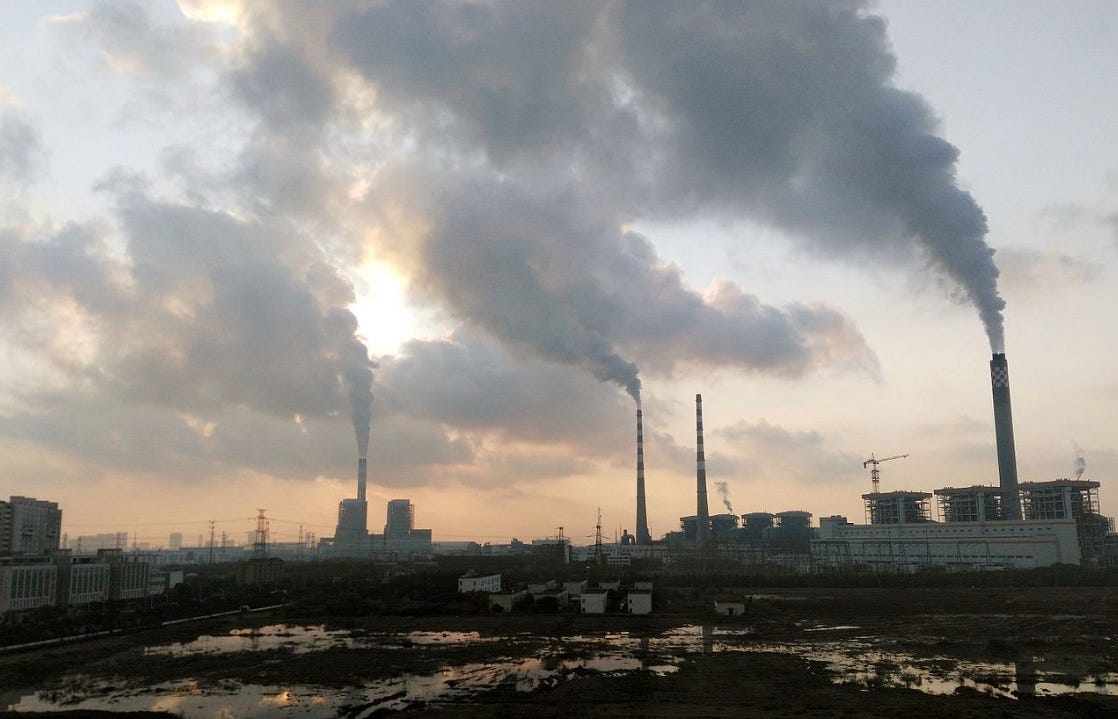Aussie oil mega deal shows era of fossil fuel consolidation is just starting
Welcome to Callaway Climate Insights. Take advantage of our holiday sale to send a gift subscription to your favorite clean energy investor.
Today’s edition is free. To read our insights and support our great climate finance journalism five days a week, subscribe now for full access.

While climate delegates labor in Dubai to craft an agreement to phase down (or out) oil and gas over the next 30 years, a major consolidation of the industry continues to expand around the world, benefitting investors.
In the wake of two major U.S. fossil fuel deals this past summer, Australian oil and gas giant Woodside Energy and rival Santos confirmed this week they are in merger talks for what could be a $52 billion deal.
Australia has become one of the hottest countries for investors in liquid natural gas (LNG) assets, and the U.S. is also making a big play as fossil fuel giants use the profits they’ve made in the last few years of the energy crisis to buy rivals.
But the clamor of deals and activity flies in the face of global talks to wean governments and investors off of fossil fuels to help mitigate climate change. The results will almost certainly be a smaller group of giant oil and gas companies using carbon capture and storage technology to try to limit their emissions, but still pumping and developing new oil and gas fields.
At some point, these large energy giants will turn their sites toward renewable energy companies, as wind and solar firms continue to develop capacity and start to see more profit. But the message from Big Oil this week is that there is still a lot of action in its own backyard.
A great gift idea . . .
. . . . Best gift ever: Get ready for the holidays by giving your favorite climate enthusiast (or yourself) a subscription to Callaway Climate Insights. Just $120 (20% off) for an annual subscription with this holiday offer!
Don’t forget to contact me directly if you have suggestions or ideas at dcallaway@callawayclimateinsights.com.
Follow us . . . .
Twitter | LinkedIn | Facebook | Instagram
Zeus: 'Down' and 'out' in Dubai: What a phased oil cut looks like for investors

. . . . It’s saying something that delegates at this year’s COP28 climate summit would see it as a major victory if they can get away with a global commitment to “phase out,” or at least “phase down” fossil fuel usage, writes David Callaway. Going into the final days of negotiation, the oil interests running this year’s summit are fighting even that type of wording. How did we get to the point at the most influential climate conference of the year when arguing over semantics over real solutions to global warming? It may be time for an overhaul of the 28-year COP process. . . .
Thursday’s subscriber insights
Here’s why you hardly hear a peep from China and India at COP28
. . . . Despite huge gains in renewable energy, fossil fuel consumption is still growing. Why? Because people want cars, AC and other accoutrements for a better life. And governments, such as China, want to keep them happy, so they keep building coal plants. When will the pattern break? Read more here. . . .
High borrowing costs are having big impact on green industries
. . . . Climate tech largely grew up in the era of super-low interest rates. And now high ones are causing trouble in the industry. Offshore wind has been particularly badly affected and now solar is seeing a slowdown. Read more here. . . .
Editor’s picks: Napa Valley Wine Train goes green; plus, EVs’ tire problem

Wine Train gets cleaner locomotives
Napa Valley’s Wine Train has unveiled the first of four clean energy locomotives. The privately operated dining excursion train runs from Napa north through the famed wine growing region to St. Helena, Calif. The newest engine in the fleet has a new EPA Tier 4-compliant engine manufactured by Rolls-Royce and commissioned through the Knoxville Locomotive Works, according to a news release. The EPA’s Tier 4 emissions standards are designed to cut nitrous oxides and particulate matter emissions, and encourage use of ultra-low sulfur diesel fuel. According to a report from The Napa Valley Register citing a company statement, three additional engines are on order and scheduled to be delivered by the end of 2024. The goal is to transition the fleet to the new Tier 4 engines by 2025. Partial funding for the project comes from the Bay Area Air Quality Management District and the Carl Moyer Memorial Air Quality Standards Attainment Program.
EVs’ connection to deforestation
The growth of rubber plantations is driven primarily by our demand for more than 2 billion new tires each year, says a report in Yale Environment 360. According to the report, a new analysis of high-resolution satellite images can distinguish rubber plantations from natural forests — which shows a “devastating impact.” Author Fred Pearce says the growing market for rubber is a major, but largely overlooked, cause of tropical deforestation, new analysis shows. Most of the rubber goes to produce tires, more than 2 billion a year, and experts warn the transition to electric vehicles could accelerate rubber use.
Latest findings: New research, studies and projects

The federal government’s buying power for climate change
What procurement officials buy, how they buy, and who they buy from can drive large shifts in the behavior of industry and consumers, say the authors of a recently published paper titled Leveraging the Federal Government's Buying Power to Mitigate Climate Change. The brief focuses on “the evolution of sustainable public procurement (primarily in the United States federal or central government marketplace).” From the abstract: “The article introduces expanding efforts by the National Contract Management Association (NCMA) and its community of practice (COP) to raise awareness of the procurement profession and community's role in adapting to and mitigating climate change, support knowledge sharing about existing work in this area, provide resources and training to contracting professionals, and integrate sustainability into contracting professional standards.” The article asserts that the federal acquisition community needs to rapidly learn, embrace, and champion sustainable procurement practices. Authors: Polly Hall, U.S. Department of Homeland Security; Tim Cooke, ASI Government, LLC; Steven L. Schooner, George Washington University Law School.

Words to live by . . . .
“Finance is the great enabler for climate action. … We need to see investing in climate mitigation and adaptation everywhere as enlightened self-interest.” — Simon Stiell, UN Climate Change Executive Secretary, speaking on Finance Day at COP28.



